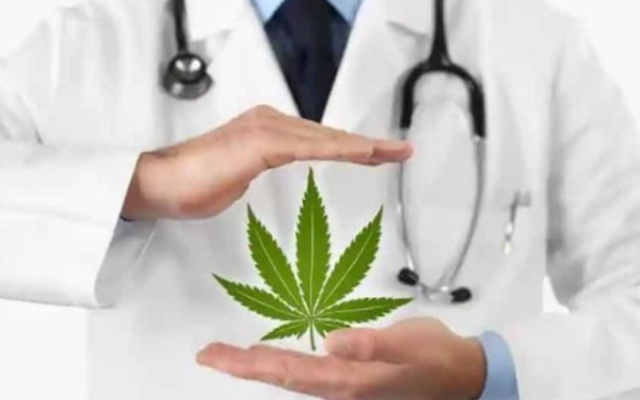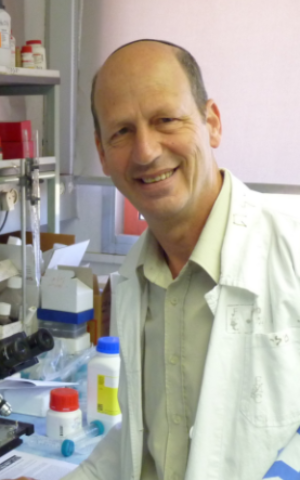Autism Researchers See Promise in Medical Marijuana
Early studies find some optimism for the use of marijuana derivatives to provide help for families coping with the difficult condition.

According to research published this October in the scientific journal Translational Psychiatry, some forms of medical marijuana may offer effective treatment for autism in children.
The study, authored by a group of seven medical experts at Israel’s Tel Aviv University, was led by Dr. Daniel Offen of the university’s medical research center and Shani Poleg, a PhD candidate in neuroscience there.
The research, which was carried out on an animal model, successfully treated autism with medical marijuana or cannabis oil.
“This treatment improves both behavioral and biochemical parameters of autism,” said Dr. Offen in a release from Tel Aviv University.
“There is a great deal of misinformation on the subject of medicinal cannabis and autism,” Offen continued, “and Shani Poleg’s project represents pioneering basic research with regard to treating autism with cannabis oil.”

According to the Centers for Disease Control and Prevention in Atlanta, one out of every 44 children is estimated to have an autism spectrum disorder. Some children can have repetitive and extreme reaction to light and sound, which can trigger emotional meltdowns and rage. In extreme cases, some children never learn to speak or speak only a few words. Social interactions can become very difficult.
In children, most symptoms of depression, anxiety or Attention-Deficit/Hyperactivity Disorder (ADHD) are treated with medications such as Ritalin or a combination of antidepressants and anti-anxiety drugs, but there is no FDA-approved treatment for what causes autism and there is no cure.
According to the Israeli researchers, the lab work was done on animals genetically modified to exhibit the symptoms of autism. The animals responded positively when they were treated with oil derived from marijuana or cannabis.
“We saw that cannabis oil has a favorable effect on compulsive and anxious behaviors in model animals,” said Poleg, the Israeli researcher. “According to the prevailing theory, autism involves overarousal of the brain, which causes compulsive behavior. In the lab, in addition to the behavioral results, we saw a significant decrease in the concentration of the arousing neurotransmitter glutamate in the spinal fluid, which can explain the reduction in behavioral symptoms.”
Unlike the U.S., where marijuana and the oil derived from it are still classified as a Schedule 1 narcotic under federal law, therefore inhibiting its use in medical research, the Israeli government formally legalized medical marijuana in 1999 and has since partially decriminalized its recreational use. In 2020, Israel’s medical marijuana patient list numbered 70,000. Now, the country has become the world’s largest importer of legal medical marijuana buds.
But medical experts caution that it might be too early for parents in America to get their hopes up.
Dr. Nathan Call, director of clinical operations at the Marcus Autism Center, points out that there is still much we don’t know about the condition; even less is known about the chemical components of medical marijuana.
“It’s too early for anyone to recommend that as a validated, well-studied type of a substance. What I tell families when they ask a question about the use of cannabidiol is that it is not well-studied and that we don’t have the same kinds of clear-cut outcomes as we do for other medications or other approaches.”
Nonetheless, according to the National Conference of State Legislatures, the acceptance of medical marijuana in the U.S. is changing. In 2021, 36 states, including Georgia and four territories, allow for the medical use of cannabis products.
Georgia specifically allows the use of products derived from marijuana for medical use only in limited situations. Products must have low concentrations of tetrahydrocannabinol (THC), the active ingredient that produces marijuana’s euphoric effect or high. The substance can, however, contain significant amounts of cannabidiol, or CBD.
Laws to allow the non-medical or recreational use of cannabis by adults have been approved in 18 states, two territories and the District of Columbia.
Researchers at the Center for Medicinal Cannabis Research at the University of California in San Diego are involved in a study of how CBD could affect the brains of children with autism.
The lead researcher in the study, Dr. Doris Trauner, is a pediatric neurologist and distinguished professor of neurosciences and pediatrics at the university. She told CNN last month that CBD use is being studied for its effect on two neurotransmitters. The first is serotonin, which is thought to regulate mood and has a large effect on brain development in early childhood, and the second is dopamine, which can reinforce behavior when we receive a reward.

“CBD, among many other things, does have effects on the serotonin system, with increasing availability of serotonin,” she added, “that may be helping in terms of social interaction in particular.”
In New York City, at the Montefiore Health System, which includes the Albert Einstein College of Medicine, a similar study is underway. It involves children and adolescents with autism being treated with another cannabinoid, cannabidivarin (CBDV).
Dr. Eric Hollander, the director of the Autism and Obsessive Compulsive Disorder Spectrum program at Montefiore, told CNN that compounds derived from marijuana show promise in treating autism. They can calm explosive behavior, temper tantrums, rage or self-injury by directly affecting communication in the brain.
“I think CBDV can play an important role in autism. It can decrease the excitation neurons and increase inhibition.”
Despite the lack of extensive research and the federal government’s unwillingness to change the classification of marijuana as a dangerous drug with no medical benefits, Dr. Call, at the Marcus Center, admits that families are always interested in trying something new.
“I can tell you that there are a lot of desperate families out there. And again, I work a lot with individuals with really significant and severe forms of challenging behavior like aggression or self-injury. And when you’re a caregiver of a child who is hurting you every day or hurting themselves every day, you’re willing to try a lot of things to try to make your life a little bit better.”
- Bob Bahr
- health & Wellness
- Local
- autism
- Medical Marijuana
- Israel autism study
- Tel Aviv University
- Dr. Daniel Often
- Marcus Autism Center
- Dr. Nathan Call
- United States
- Israel
- cannabis oil
- Translational Psychiatry
- Shani Poleg
- Centers for Disease Control and Prevention
- autism spectrum disorder
- Cannabis
- depression
- Anxiety
- Attention-deficit/hyperactivity disorder (ADHD)
- Schedule 1 narcotic
- Israeli Government
- legal medical marijuana buds
- National Conference of State Legislatures
- GEORGIA
- cannabis products
- tetrahydrocannabinol (THC)
- Center for Medicinal Cannabis Research at the University of California in San Diego
- Dr. Doris Trauner
- Montefiore Health System
- Albert Einstein College of Medicine
- Dr. Eric Hollander
- Autism and Obsessive Compulsive Disorder Spectrum program
- Health
- wellness



comments